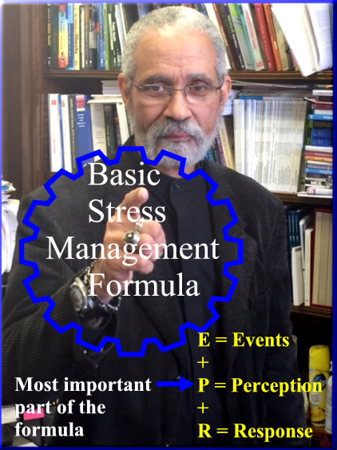Unravelling the Link: How Stress Management Can Shield Your Mental Health Against Dementia
In the bustling rhythm of modern life, stress has become a companion to many. However, the impact of chronic stress on our mental health, particularly concerning dementia, is a conversation we must not overlook. "Unravelling the Link: How Stress Management Can Shield Your Mental Health Against Dementia" delves into the intricate relationship between sustained stress levels and the increased risk of developing dementia. This article aims to shed light on effective stress management techniques as not just a means for better mental health, but as a potential shield against the onset of dementia.
The Science Behind Stress and Its Effects on the Brain
Stress, an unwelcome yet ubiquitous companion in our fast-paced lives, has profound effects on the brain, laying the groundwork for various mental health challenges, including the risk of developing dementia. When the body perceives a threat, it releases stress hormones such as cortisol, which, in small doses, helps us tackle immediate challenges. However, chronic exposure to these hormones can alter brain function, harming areas vital for memory, such as the hippocampus, and impairing our ability to manage stress effectively.

This alteration not only affects memory formation but also impacts the brain's plasticity—its ability to change and adapt. Over time, this can lead to cognitive decline and increase the vulnerability to neurological conditions like dementia. Understanding the science behind stress's impact on the brain underscores the importance of effective stress management strategies in maintaining mental health and potentially safeguarding against dementia.
Understanding Dementia: Types, Causes, and Symptoms
Diving into the complexities of dementia reveals a condition not limited to a single type but a spectrum of neurological disorders affecting memory, cognitive function, and behavior. Alzheimer's disease stands as the most recognized form, accounting for a significant majority of cases. Yet, vascular dementia, Lewy body dementia, and frontotemporal dementia also contribute to the mosaic of this condition, each with unique causes ranging from genetic predispositions to cardiovascular health issues. Symptoms universally encompass memory loss, difficulty with planning or solving problems, and changes in mood or personality, severely impacting daily life. Underlying these manifestations is often a combination of lifestyle factors, age-related changes, and, notably, chronic stress. Stress management, therefore, not only becomes imperative for overall mental health but also as a strategy potentially mitigating the progression or risk of developing dementia, underscoring the intrinsic link between stress and neurological wellbeing.
Stress as a Risk Factor for Dementia: What the Research Says
Recent studies have illuminated a compelling link between prolonged stress and an increased risk of developing dementia, spotlighting stress management as a pivotal component of mental health care. Research indicates that chronic stress triggers brain changes that may contribute to dementia. Specifically, it can lead to the production of cortisol, a hormone that, in excessive amounts, can impair brain function. High levels of cortisol have been associated with reduced brain volume and impaired cognitive abilities, factors closely linked with the development of dementia. Interestingly, the relationship between stress and dementia underscores the importance of effective stress management in safeguarding mental health. Strategies such as mindfulness, regular physical activity, and maintaining strong social bonds have shown promise in reducing stress and potentially decreasing the risk of dementia. These findings advocate for a proactive approach to managing stress, emphasizing its significance not just for immediate well-being but also for long-term cognitive health.
Stress Management Techniques: From Meditation to Physical Activity
In the quest for effective stress management, a blend of meditation and physical activity emerges as a potent strategy for bolstering mental health and potentially reducing the risk of developing dementia. Meditation, with its deep roots in mindfulness, offers a sanctuary of calm in the midst of life's storms. It trains the mind to focus on the present moment, reducing the scatter of stress-induced thoughts and promoting a state of peace. On the flip side, physical activity acts as a dynamic counterpart. Whether it’s a brisk walk, a dance class, or yoga, exercise releases endorphins, often dubbed 'feel-good' hormones, which combat stress and elevate mood. This dual approach not only provides immediate relief from the clutches of stress but also builds resilience against future stressors. By integrating meditation and physical activity into daily routines, individuals can fortify their mental health, possibly carving a path away from the shadows of dementia.
The Role of Diet and Nutrition in Managing Stress and Preventing Dementia
The nexus between diet, nutrition, and our mental health, particularly in the realms of stress management and dementia prevention, is a compelling aspect of contemporary medical understanding. A balanced diet, rich in antioxidants, omega-3 fatty acids, and vitamins, plays a pivotal role in bolstering the brain's resilience against stress and its detrimental effects. Foods high in omega-3 fatty acids, such as oily fish, have been linked to reduced rates of cognitive decline and a lower risk of developing dementia-related diseases. Similarly, antioxidants found in brightly colored fruits and vegetables combat oxidative stress, which is known to precipitate both mental health challenges and cognitive impairments. Furthermore, the incorporation of whole grains and lean proteins can stabilize blood sugar levels, thereby moderating mood swings and stress responses. Embracing a mindful approach to diet and nutrition not only fortifies the body against physical ailments but also constitutes a critical preemptive strategy against mental health deterioration, including dementia.
Lifestyle Changes: The Impact of Sleep and Social Connections
In the quest for better mental health and reduced risk of dementia, lifestyle changes, particularly concerning sleep and social connections, have emerged as pivotal. Adequate sleep is not just a cornerstone of stress management but also plays a crucial role in cognitive function. It allows the brain to rest, repair, and consolidate memories, all of which are vital for staving off dementia. On the other hand, nurturing positive social connections can significantly mitigate stress levels. Engaging with friends, family, and wider social groups provides emotional support, staves off feelings of isolation, and can enhance cognitive reserves. This synergy of ample rest and robust social ties creates a protective buffer for mental health, thereby potentially delaying or diminishing the onset of dementia symptoms. These lifestyle choices underscore the holistic approach necessary in managing stress and safeguarding against cognitive decline.
Professional Help: When to Seek Support for Stress and Mental Health
Recognizing when to seek professional help is a crucial step in effective stress management and maintaining mental health, with potential implications for dementia prevention. It's essential not to struggle in silence but to acknowledge when stress becomes overwhelming, impacting daily functioning and quality of life. Warning signs necessitate professional intervention, including persistent feelings of anxiety or depression, difficulty in managing daily tasks, significant changes in mood or behavior, and increased reliance on substances like alcohol or drugs.
Mental health professionals can offer tailored strategies for stress management, addressing individual needs and situations. This may involve therapy sessions focusing on cognitive-behavioral techniques, stress reduction exercises, or even medication when necessary. Early and proactive engagement with mental health services not only aids in coping with stress but might also contribute to lowering the risk of developing stress-related conditions, including dementia. Empowering oneself to seek support is a vital step towards a healthier mind and future.
Case Studies: Successful Stress Management and Reduced Dementia Risk
The link between stress management and a reduced risk of dementia has been illuminated by several compelling case studies. For instance, a study published in the "Journal of Alzheimer's Disease" highlighted individuals who participated in regular mindfulness meditation sessions. These individuals not only reported lower stress levels but also showed decreased markers associated with dementia risk in their brain scans. Another landmark project followed a group of adults practicing daily stress management techniques, such as deep breathing and yoga. Over a decade, these individuals exhibited a slower decline in memory and cognitive functions compared to those who did not engage in stress management practices. These cases underscore the significant potential of consistent stress management in maintaining mental health and reducing the risk of dementia. By adopting mindfulness and other stress-reducing activities, individuals can actively contribute to their cognitive wellness and potentially ward off dementia.
Conclusion: Embracing Stress Management for a Healthier Mind and a Reduced Risk of Dementia
In wrapping up our exploration, it's unequivocally clear that stress management is not merely a tool for achieving transient peace or tackling everyday anxiety but a significant ally in fortifying our mental health against the looming specter of dementia. The evidence draws a compelling line connecting the dots between rigorous stress management and a tangible reduction in dementia risk. Adopting practices such as mindfulness, exercise, and a balanced diet doesn't just promise a more serene present but potentially shields our cognitive faculties in the years to come. Moreover, embracing stress management cultivates a resilience that transcends the immediate benefits, embedding a layer of protection against mental health conditions. Thus, in acknowledging the overwhelming intertwining of stress, dementia, and mental health, the path forward is clear: actively engaging in stress management is a pivotal stride towards safeguarding our minds, ensuring not just a healthier present but a brighter, more lucid future.
Meta description
Discover how stress management could be your shield against dementia in "Unravelling the Link: How Stress Management Can Shield Your Mental Health Against Dementia".
Meta keywords
chronic stress and dementia, stress management techniques, mental health and dementia, impact of stress on mental health, preventing dementia, stress and dementia link
Tags
chronic stress and dementia, stress management techniques, mental health and dementia, impact of stress on mental health, preventing dementia, stress and dementia link
Categories
Mental Health, Stress Management, Dementia Awareness
Slug
unravelling-the-link-how-stress-management-can-shield














